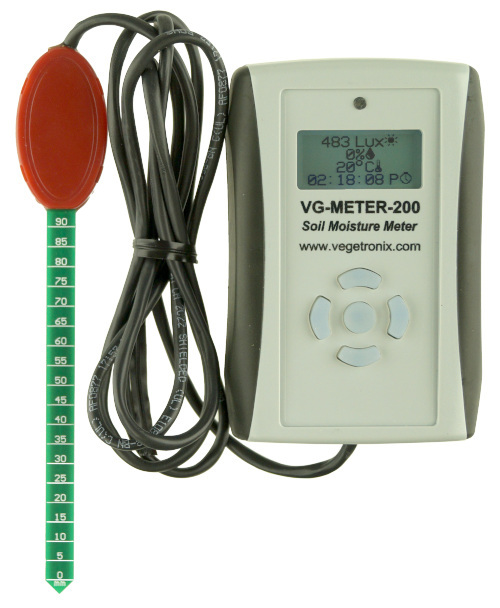The Ultimate Guide to Picking the Right Moisture Meter for Your Needs
The Ultimate Guide to Picking the Right Moisture Meter for Your Needs
Blog Article
The Ultimate Overview to Dampness Meters: A Comprehensive Summary and How They Can Conserve You Money
Moisture meters offer as crucial devices in discovering and keeping track of moisture content in products, assisting in protecting against expensive problems and guaranteeing the top quality of products. Recognizing the subtleties of different types of dampness meters, their applications, and the possible cost-saving benefits they use can be a game-changer for businesses and professionals alike.
Kinds of Moisture Meters
Various sorts of wetness meters are readily available for various applications in numerous industries. One common type is the pin-type dampness meter, which determines the electric resistance between two pins placed right into a product. This kind appropriates for timber, drywall, and various other structure materials. Pinless wetness meters, on the various other hand, use electro-magnetic sensing unit plates to check a larger location without creating damage to the product's surface. Moisture Meter. These meters are suitable for quickly evaluating wetness levels in big locations such as wall surfaces and floorings.

Infrared dampness meters determine the thermal residential or commercial properties of a material to establish its moisture content non-invasively, making them beneficial for applications where pin or pinless meters may not be appropriate. Comprehending the various kinds of moisture meters readily available can help industries select the most appropriate device for their details dampness measurement needs.

Advantages of Using Moisture Meters
Dampness meters offer important benefits in properly examining and keeping track of moisture degrees in varied products and environments (Moisture Meter). One of the key benefits of using dampness meters is the prevention of possible damages brought on by excess dampness. By identifying and resolving high moisture levels early on, wetness meters aid to stop mold growth, rot, and structural damages in structures, saving both money and time on repair services. Furthermore, dampness meters aid in making sure the high quality of products during construction or production processes. By properly gauging moisture content, these tools help preserve the honesty of wood, drywall, concrete, and various other products, decreasing the danger of issues or failings.
Additionally, using moisture meters can lead to raised energy efficiency. By recognizing areas with high dampness degrees, such as leakages or bad insulation, modifications can be made to boost power conservation and reduce energy expenses. In farming settings, wetness meters play an important function in maximizing plant returns by enabling farmers to keep track of dirt dampness degrees and make educated watering choices. In general, the benefits of using dampness meters cover across different industries, giving economical remedies and advertising far better quality assurance practices.
Just How to Select the Right Dampness Meter
When picking a dampness meter, it's important to ensure that the meter is appropriate for the details material see post you will certainly be screening. Various products have differing electric residential properties that can influence moisture analyses, so choosing a meter made for your material is vital for accurate results. By thoroughly examining these variables, you can pick a wetness meter that meets your needs and supplies precise wetness measurements for your projects.
Appropriate Techniques for Wetness Meter Usage

Expense Savings Via Wetness Meter Applications
How can the calculated usage of wetness meters cause significant price financial savings across various browse around these guys industries? Moisture meters play a critical role in price savings by preventing potential damage and guaranteeing high quality control in various fields. In the farming industry, dampness meters aid in identifying the ideal time for collecting plants, protecting against excess or over-drying dampness that can influence the final item's top quality. This specific monitoring aids farmers avoid unnecessary losses and optimize their return.
Likewise, in building, wetness meters assist stop costly problems by discovering wetness levels in building products, such as wood or concrete, which can bring about architectural problems otherwise resolved promptly. By determining problem areas early on, specialists can take restorative actions to avoid comprehensive repairs or substitutes, eventually saving time and cash.
Moreover, in the food handling industry, dampness meters are crucial for keeping an eye on item quality and guaranteeing compliance with safety and security guidelines. By precisely gauging dampness web content in food products, makers can protect against perishing, maintain freshness, and lower waste, resulting in significant cost savings. In general, the tactical application of wetness meters is a useful financial investment that can result in significant price decreases and boosted performance throughout numerous markets.
Final Thought
In conclusion, moisture meters are beneficial tools for finding and gauging wetness levels in numerous materials. By making use of the ideal moisture meter and complying with proper methods, customers can successfully prevent expensive problems caused by excess dampness.
Moisture meters serve as essential devices in spotting and monitoring moisture material in products, helping in preventing expensive problems and guaranteeing the high quality of items. Infrared moisture meters determine the thermal homes of a material to establish its moisture material non-invasively, making them beneficial for applications where pin or pinless meters might not be ideal.Moisture meters provide very useful advantages in accurately keeping track of and examining dampness degrees in varied materials and environments. In agricultural settings, wetness meters play a vital duty in maximizing plant returns by enabling farmers to keep track of dirt Extra resources dampness degrees and make educated watering choices.In verdict, dampness meters are valuable devices for gauging and identifying dampness degrees in numerous products.
Report this page